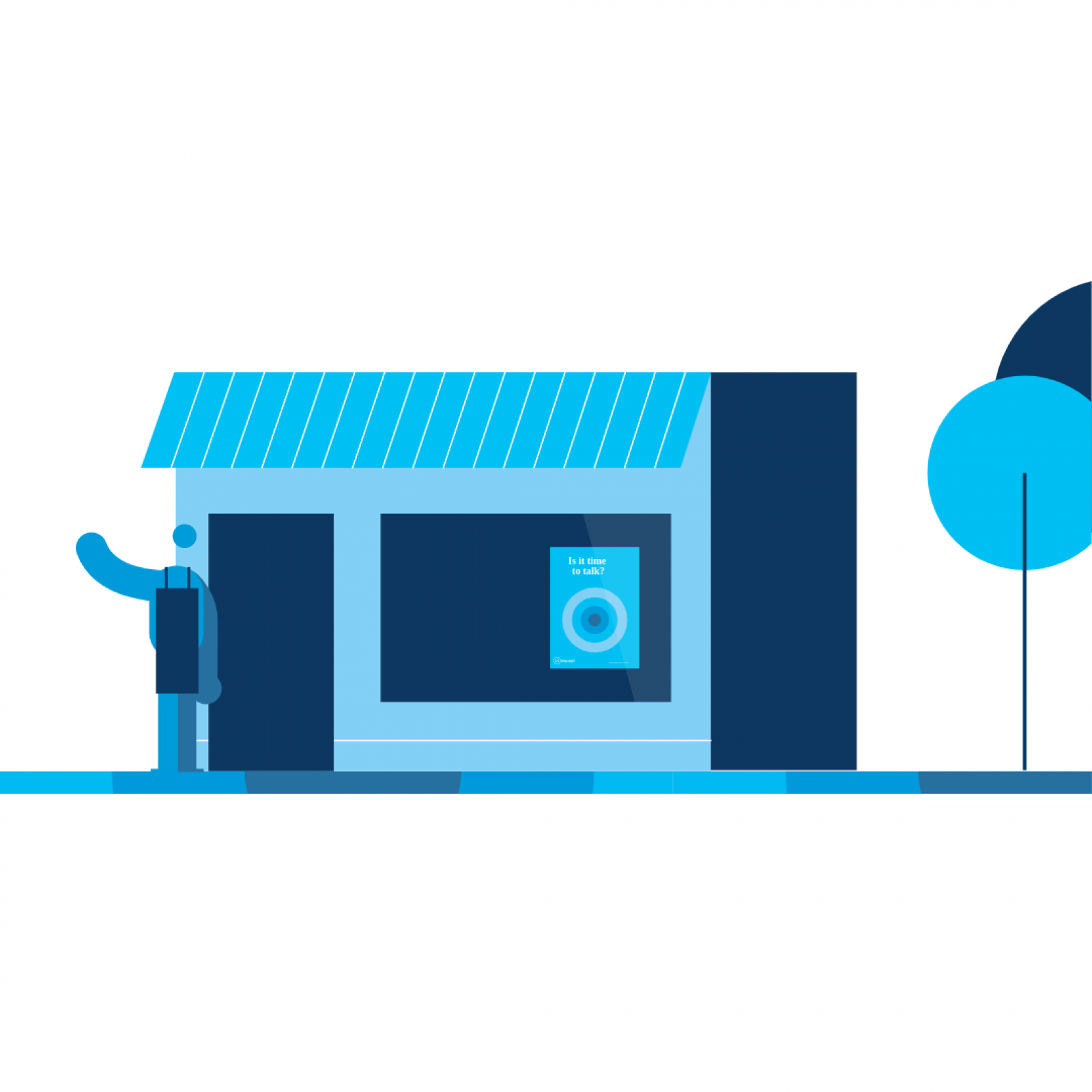When Jo’s son took his own life in 2017 he was just 26 years old. “I used to hear about other mums this had happened to and think ‘poor them’. But then it was me. I was that woman.” She knew she had to do something to help other young men talk if they’re feeling low, to get help before it’s too late.
Jo became a volunteer for Mentell, a men’s mental health charity working in East Cheshire, providing a safe space for men to talk. They’re guided by principles of safety, non-judgemental listening, and respect, with no commitment to return every week or even to speak unless you’re ready. Men can refer themselves online and find a ‘talking circle’ to attend in person or virtually.
She visited pubs, coffee shops, gyms, tattoo parlours and barbers, handing out flyers and spreading the word about Mentell. A CCF grant pays for the resources she needs to do this vital work, and she’s now a full time member of staff, looking after local volunteers and finding ways to reach young men who might not otherwise speak up. “I’ll get up early on a wet Sunday morning to go to a charity day or a football match and I’ll think: yes it’s worth it, if we help one person it’s worth it. I don’t mind if someone leaves our flyer on their seat. Because the next person to sit there might be the one that really needs it.”
Andrew Walker, Chair of Mentell told us: “73% of suicides occur within 12 months of a person not even being known to statutory services. This tells us we need to be there for men as a less daunting prospect than speaking to a GP or seeking professional help.”
That’s why they came up with their Turn Your Bar Blue campaign, where pubs and bars can sign up to swap their usual bar mats for Mentell’s blue ‘Is it time to talk?’ ones. We know that many men will mask their mental health problems with alcohol, and that meeting for a drink might be one of the few social interactions someone who is beginning to struggle might have.
“I’m lucky.” says Jo “I love what I do, I’ve got a massive driver to do it. Every time I go out to a town centre or do an event, I find out someone new has self-referred. It’s so worthwhile, so satisfying. I’m like a stick of rock, I’ve got Mentell written all the way through. I’ll never work anywhere else.” Jo’s energy is infectious and inspiring. When she tells her story to a landlord or a barber, they don’t hesitate to sign up to raise awareness, and often end up fundraising for the charity too, or even volunteering or attending groups.
Jo told us about a recent charity carwash at a firestation, where she met the friends and mother of another young man who’d taken his own life. “I thought, I know where you are. I’ve been there too. I’m a different person now, because of what I’ve been through. But I like the new me. I care about what people might be feeling, what’s happened to them. And I want to help.” Through your donations, we approve grants that enable people like Jo to provide that help.
One person who attends Mentell’s circles every week is Nick, seen in this video. Nick lost the business he’d put many years into, and knew he needed a place to ‘offload’. He was initially nervous, but the group was warm and friendly, and he found acceptance and camaraderie amongst the other men attending. He is now feeling more resilient, and continues to attend meetings to ensure he’s keeping an open dialogue when he hits more of life’s bumps in the road.
With the advent of the pandemic, Mentell went from having 200 clients to 2000. Luckily, they were well set up online with automated processes and switched their circles from in-person to virtual. Their volunteer group facilitators are tremendously well prepared for their role, with mental health first aid as well as trauma informed training, safeguarding, neuro-linguistic programming, and a continuous programme of thematic development, and are supported by a full time professional so that debriefs and client support signposting can happen without delay.
It takes such courage to ask for help. So many of Mentell’s clients are only taking this step because they’ve heard about it at their barber’s or seen that blue beermat in the pub. It’s a perfectly timed moment, that question of ‘Is it time to talk?’ just when it was needed. Without the support of our generous donors, Jo and her team wouldn’t be out spreading the word about their support groups, and those men would continue to struggle alone.

